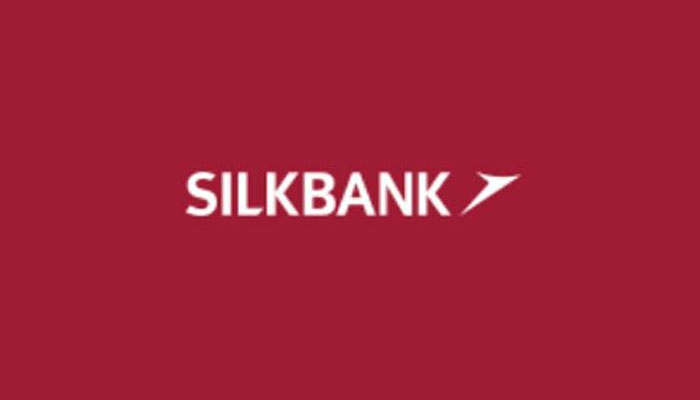Silkbank agrees to sell majority stake to Fauji Foundation
KARACHI: A multi-industry company Fauji Foundation on Thursday got consent of Silkbank Limited to acquire the bank’s majority stake. Financial terms were not disclosed.
The bank allowed Fauji Foundation to conduct due diligence of Silkbank and the company intends to apply to the State Bank of Pakistan for the requisite approval, the bank said in a filing with the Pakistan Stock Exchange.
The bank’s board of directors gave its in-principle approval to allow Fauji Foundation to conduct the require diligence and evaluate the information that will be provided by the Silkbank, according to the notice.
Fauji Foundation, also known as Fauji Group, serves the interests of ex-servicemen. It runs more than 18 industries. The group already owns and operates Askari Bank.
Silkbank, formerly Saudi-Pak Commercial Bank, is mainly owned by Arif Habib Corp. with 28 percent shareholding, former finance adviser Shaukat Tarin (12 percent), International Finance Corporation (8 percent), Nomura (4 percent) and Bank of Muscat (3 percent).
The bank is profitable with net profit recorded at Rs151 million for the nine-month period of calendar year 2020. The bank’s deposits stood at Rs154 billion, advances Rs99 billion and equity Rs8.9 billion. The bank, however, has an accumulated loss at Rs13.5 billion, according to Alpha Beta Core.
The announcement triggered remarkable trading spike in shares of the bank. Silkbank recorded a historic high volume of 355 million shares, the highest traded volume in a single stock since March 4, 2005, according to brokerage Arif Habib Limited. The SBP said asset quality emerged as the key concern of banking sector when the cost-push factors undermined borrowers’ payback capacity and some industry specific factors led to a rise in the level of non-performing loans, although the sector remained resilient with robust solvency backed by healthy profitability. The capital adequacy ratio remained well above the minimum regulatory requirements. Strong liquidity indicators further strengthened.
“While the financing demand decelerated, banks also opted for investment in risk free government papers. The deposit growth revived as the attractiveness of saving and fixed deposits increased. The on-going COVID-19 pandemic presents a multidimensional challenge for the banking sector as their business continuity, profitability, and solvency could experience stress, going forward,” the SBP said in a report.
The non-performing loans of the banking sector observed 11.9 percent (Rs81.3 billion) addition during CY19, compared to 14.7 percent (Rs87.2 billion) in CY18 and about 84 percent of the non-performing loans pertained to the domestic portfolio, according to the SBP.
-
 BAFTAs 2026: Kerry Washington Makes Debut In Custom Prada Gown
BAFTAs 2026: Kerry Washington Makes Debut In Custom Prada Gown -
 Jennifer Lopez Gets Emotional As Twins Max And Emme Turn 18
Jennifer Lopez Gets Emotional As Twins Max And Emme Turn 18 -
 Andrew Mountbatten Windsor Blunders Are Result Of 'conspiracy Of Silence'
Andrew Mountbatten Windsor Blunders Are Result Of 'conspiracy Of Silence' -
 Keith Urban Fires Entire Management Team After Divorcing Nicole Kidman
Keith Urban Fires Entire Management Team After Divorcing Nicole Kidman -
 Kylie Jenner Marks Death Anniversary Of Hairstylist Jesus Guerrero With '222' Tribute
Kylie Jenner Marks Death Anniversary Of Hairstylist Jesus Guerrero With '222' Tribute -
 Daniel Radcliffe On How It's Like Seeing New Harry Potter Cast Years Later
Daniel Radcliffe On How It's Like Seeing New Harry Potter Cast Years Later -
 Andrew Portrait Makes Unexpected Debut At Louvre Museum Over Epstein Protest
Andrew Portrait Makes Unexpected Debut At Louvre Museum Over Epstein Protest -
 Italy: Skeleton Of Saint Francis Of Assisi’s Goes On Public Display For First Time After 800 Years
Italy: Skeleton Of Saint Francis Of Assisi’s Goes On Public Display For First Time After 800 Years -
 Hailey Bieber's Subtle Gesture For Eric Dane’s Family Revealed
Hailey Bieber's Subtle Gesture For Eric Dane’s Family Revealed -
 Moment Prince William 'broke Down' And 'apologised' To Kate Middleton
Moment Prince William 'broke Down' And 'apologised' To Kate Middleton -
 Paul Mescal And Gracie Abrams Stun Fans, Making Their Romance Public At 2026 BAFTA
Paul Mescal And Gracie Abrams Stun Fans, Making Their Romance Public At 2026 BAFTA -
 EU Rejects Any Rise In US Tariffs After Court Ruling, Says ‘a Deal Is A Deal’
EU Rejects Any Rise In US Tariffs After Court Ruling, Says ‘a Deal Is A Deal’ -
 King Charles Congratulates Team GB Over Winter Olympics Success
King Charles Congratulates Team GB Over Winter Olympics Success -
 Meryl Streep Comeback In 'Mamma Mia 3' On The Cards? Studio Head Shares Promising Update
Meryl Streep Comeback In 'Mamma Mia 3' On The Cards? Studio Head Shares Promising Update -
 Woman Allegedly Used ChatGPT To Plan Murders Of Two Men, Police Say
Woman Allegedly Used ChatGPT To Plan Murders Of Two Men, Police Say -
 James Van Der Beek's Widow Mourns Eric Dane Days After Husband's Death
James Van Der Beek's Widow Mourns Eric Dane Days After Husband's Death




